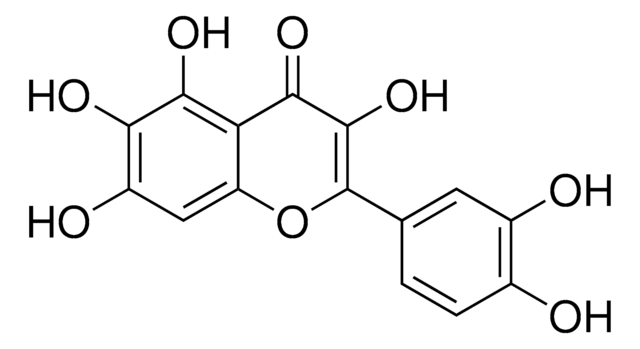Y0000113
Carbachol
European Pharmacopoeia (EP) Reference Standard
Synonyme(s) :
Carbamoylcholine chloride, (2-Hydroxyethyl)trimethylammonium chloride carbamate, Carbachol, Carbamylcholine chloride
About This Item
Produits recommandés
Qualité
pharmaceutical primary standard
Famille d'API
carbachol
Fabricant/nom de marque
EDQM
Pf
210 °C (dec.) (lit.)
Application(s)
pharmaceutical (small molecule)
Format
neat
Température de stockage
2-8°C
Chaîne SMILES
[Cl-].C[N+](C)(C)CCOC(N)=O
InChI
1S/C6H14N2O2.ClH/c1-8(2,3)4-5-10-6(7)9;/h4-5H2,1-3H3,(H-,7,9);1H
Clé InChI
AIXAANGOTKPUOY-UHFFFAOYSA-N
Informations sur le gène
human ... CHRM3(1131)
Vous recherchez des produits similaires ? Visite Guide de comparaison des produits
Description générale
Application
Conditionnement
Autres remarques
Produit(s) apparenté(s)
Mention d'avertissement
Danger
Mentions de danger
Conseils de prudence
Classification des risques
Acute Tox. 2 Oral
Code de la classe de stockage
6.1A - Combustible acute toxic Cat. 1 and 2 / very toxic hazardous materials
Classe de danger pour l'eau (WGK)
WGK 3
Point d'éclair (°F)
Not applicable
Point d'éclair (°C)
Not applicable
Faites votre choix parmi les versions les plus récentes :
Certificats d'analyse (COA)
Désolés, nous n'avons pas de COA pour ce produit disponible en ligne pour le moment.
Si vous avez besoin d'assistance, veuillez contacter Service Clients
Déjà en possession de ce produit ?
Retrouvez la documentation relative aux produits que vous avez récemment achetés dans la Bibliothèque de documents.
Les clients ont également consulté
Notre équipe de scientifiques dispose d'une expérience dans tous les secteurs de la recherche, notamment en sciences de la vie, science des matériaux, synthèse chimique, chromatographie, analyse et dans de nombreux autres domaines..
Contacter notre Service technique














